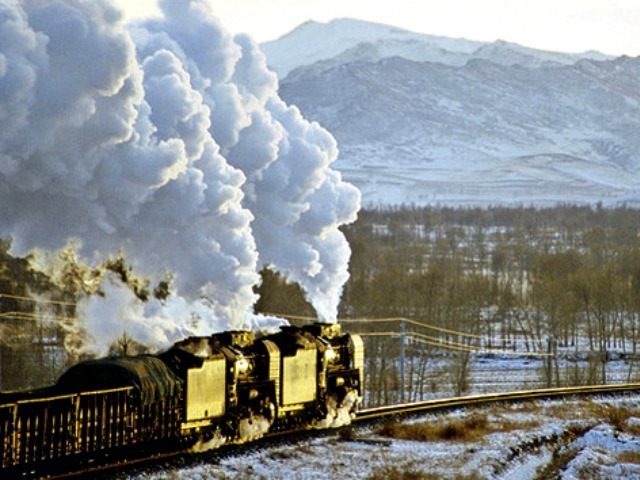A few weeks ago, Breitbart News took a look at China’s plans to rebuild the fabled “Silk Road” trade route through Asia and Europe. It is an ambitious plan to construct roads, railways, and shipping lanes, potentially consuming a large portion of the construction and transportation capital China has hoarded.
Some analysts are skeptical of the plan, believing China is talking a much bigger game than it intends to play. Energy analyst Robert Berke of OilPrice.com takes the Silk Road initiative (formally referred to as “One Belt, One Road” by the Chinese government) very seriously. Even if it never quite coalesces into a 21st-century version of the legendary trade route, its components are impressive projects in their own right, and the influence China banks by inviting other nations to support its effort could “change global economics forever,” in Berke’s estimation.
For example, a major component of the New Silk Road will be its financial infrastructure, the Asian International Infrastructure Bank, which China launched in 2014 with a $47 billion investment. “Some 58 nations have signed on to become charter bank members, including most of Western Europe, along with many Silk Road and Asian countries,” Berke writes. “There are 12 NATO countries among AIIB´s founding member states (UK, France, Netherlands, Germany, Italy, Luxembourg, Denmark, Iceland, Spain, Portugal, Poland and Norway), along with three of the main US military allies in Asia (Australia, S. Korea and New Zealand).”
Also on board: the United States, which initially opposed the project and tried to convince its allies not to participate. It is a clear economic victory for China, with vigorous Obama Administration opposition so thoroughly crushed that we are now in the midst of a classic “as I have always said” Obama history revision, with the Administration claiming it loved the AIIB concept all along.
The end result is China drawing most of Europe and much of Asia, including stout American allies like the United Kingdom, Australia, and South Korea, into a financial partnership with China (and Russia!) that the U.S. initially opposed.
Berke persuasively argues that China will want American technological, political, and financial assistance to complete the New Silk Road project and, despite the Administration’s initial objections, such assistance will probably be forthcoming, since American companies will not want to be frozen out of a combined effort that incorporates most of the developed world, and its goals are compatible with the trade deal currently raising such a ruckus in Congress.
If that is not a global economic “realignment,” what is?
China is heading up major energy projects in Pakistan and Iran that will plug into the New Silk Road, with very little concern for the sanctions supposedly leveled against Iran over its nuclear ambitions. That is going to give China a great deal of influence in a region where Obama’s policies have all but erased American prestige, capped off by a “nuclear deal” that Iran is already spinning as American capitulation.
The New Silk Road will also involve huge rail projects in Central Asia, which had the president of Kazakhstan very excited about the possibility of a “new, high-speed combined transport route” that will connect “not only China and Kazakhstan, but also Russia and Europe, and it will have access to the Central Asian countries.” Business Insider calls this “another sign that the world’s economic center is moving east.”
India appears to be a stubborn impediment to Chinese ambitions, and Berke notes that President Obama has portrayed the fast-track Pacific trade authority he, and congressional Republican leaders, desire as an effort to keep China from dominating Asia’s economy. The problem is that China’s big project will be seen by many potential partners as a unique opportunity.
“In a world where economic growth is tepid, with Europe still struggling with the aftermath of the global recession, along with China’s growth slowdown, where else could a project that promises so much opportunity be found?” asks Berke. “Consider how many jobs could be created in a decades-long construction project that spans a huge region of the world. In practically every sector, the prospects are enormous for a revival of trade and commerce.”
If he is right about much of the developed world seeing this project as “a new renaissance in commerce, industry, discovery, thought, invention, and culture that could well rival the original Silk Road,” it will be hard to resist the conclusion that China has taken the leadership role in guiding the world’s economy.
Berke anticipates resistance nonetheless, perhaps leading to “a new cold war between East and West for dominance in Eurasia.”
If only Americans had taken the opportunity in 2008 or 2012 to get their economy into fighting shape for such a competition, instead of choosing to spend eight years circling the edge of a recession and listening to politicians tell us we are capable of, and deserve, no better.

COMMENTS
Please let us know if you're having issues with commenting.